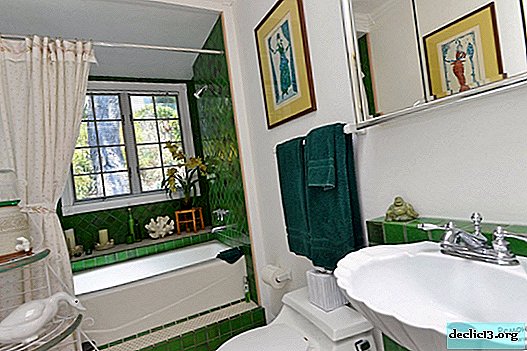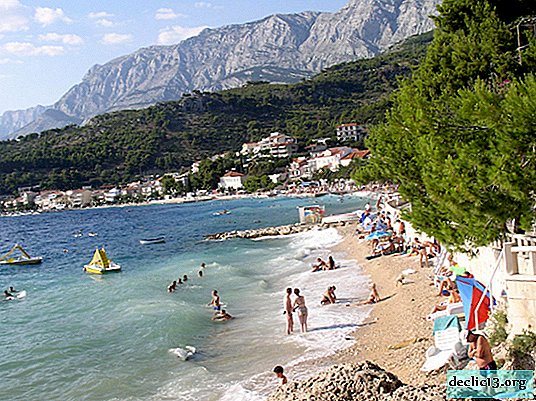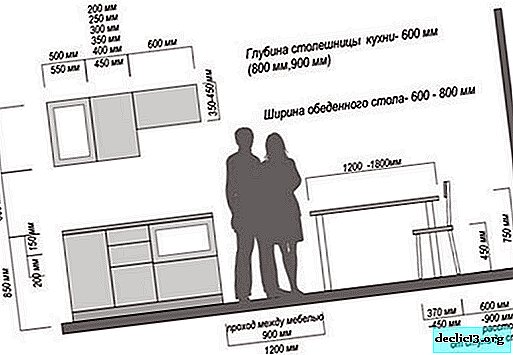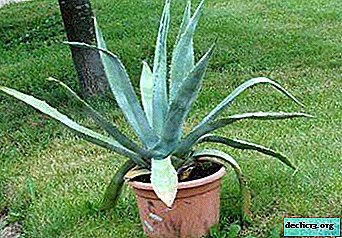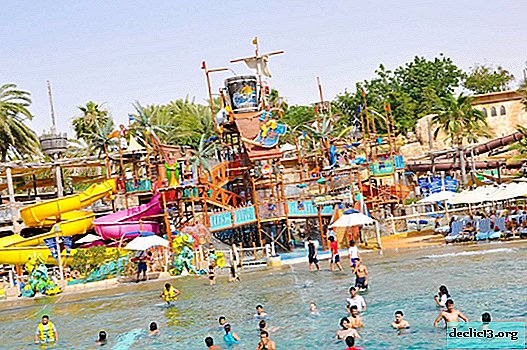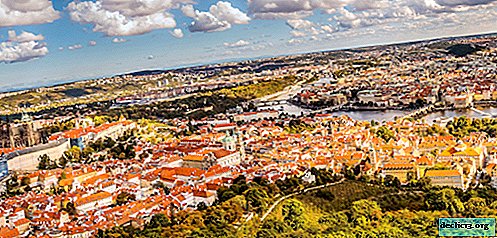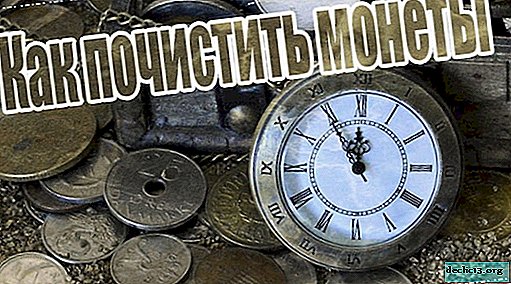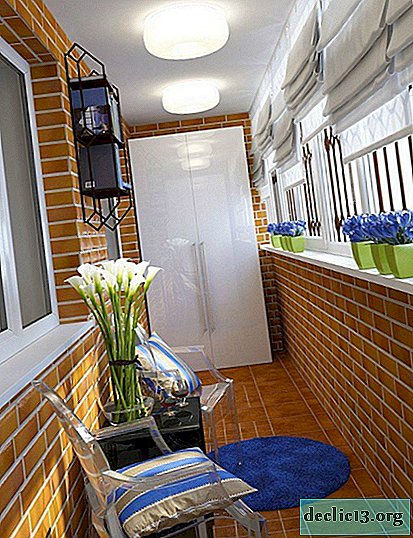The city of Braga is the religious capital of Portugal
Braga (Portugal) is an ancient, religious city whose history has been going on for two thousand years. During this time, the city was inhabited by Celts, brokers, Romans and Moors. It was here that the first Portuguese king Athos Enriques was born. The local population is characterized by conservatism and piety, it is not surprising that Braga is considered the religious center of Portugal, here is the residence of the bishop. The city hosts many religious events, and during the Easter week, altars are erected on the streets and decorated with them.
Photo: Braga (Portugal).
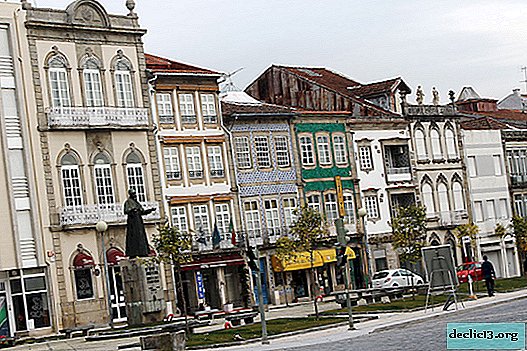
General information
The city of Braga in Portugal is the center of the county and municipality of the same name. It is located 50 km from Porto, to the basin between the Esti and Cavadou rivers. More than 173 thousand people live here.
On the territory of Braga, people settled in the III century BC, at which time Celtic tribes lived here. Later, in the 14th century AD, the Romans settled here, having founded a city called Bracara Augustus. The Romans were supplanted from the settlement by barbarians, who were replaced by the Moors. In the 11th century, Braga came under the control of the Portuguese, and at the beginning of the 16th century received the status of the city of archbishops.
Braga is called Portuguese Rome, since the city was the capital of the Roman province of Gallecia.

Sights of Braga are described in a separate article, but here we will focus on the color of the city and how to get to it.
Color Braga - festivals and entertainment
Despite their religiosity and piety, the locals are very cheerful and love to relax no less than work. The city holds fairs, exciting ceremonies, holidays.
Freedom DayNational holiday is celebrated annually in the spring - April 25 throughout the country. On this day in 1974, thousands of people with red carnations in their hands took to the streets of the capital to overthrow the fascist regime of Antonio Salazar. They handed flowers to soldiers in exchange for weapons.
The revolution is considered bloodless, although four people died. For two years, there have been global changes in Portugal, the regime has changed. Since then, April 25 is the most important day in the history of the state. The celebration takes place very merrily and magnificently, in many cities of Portugal bullfighting is held, which, by analogy with the revolution, is also bloodless. Unlike the Spanish bullfighting, where a matador kills an animal, in Portugal the bull remains alive.
Good Friday
Given that the city of Braga is the religious center of the country, special attention is paid to church holidays here. On Good Friday, the streets of the city transform and resemble a medieval settlement. Locals in old clothes go out with torches. Pilgrims walk in the streets in black robes in hoods. Tourists and guests of the city are shown theatrical performances on Bible themes.
Feast of John the Baptist
This day is celebrated in early summer, but the main celebrations are held at night from June 23 to 24. In the documents, the first mention of the holiday dates back to the 14th century, but historians suggest that the celebrations were held earlier.
The day of John the Baptist is celebrated in the city magnificently and on a grand scale. The streets are decorated, special attention is paid to the historical part of Braga. Locals gather on the banks of Esti, in the park and on the main avenue, theatrical performances of the Epiphany are held. On this night, the villagers converge in the city of Braga, they go all the way on foot, playing old musical instruments.
Celebrations are accompanied by fairs and treats. Tourists are offered to try fried sardines with a slice of brown bread, traditional cabbage soup and drink refreshments with green wine.
On June 24, ensembles pass through the streets of the city, beautifully decorated platforms pass on, on which huge figures of shepherds and King David are installed. Also among the figures there are necessarily important saints for Braga - Peter, John and Anthony of Padua.
Independence Day Republic Square
Republic SquareCelebrated annually on December 1, and is very revered by the inhabitants of Portugal. The younger generation pays special attention to celebrations; they organize processions with fireworks, concerts and noisy parties.
Immaculate Conception DayThe celebration takes place on December 8th. Many confuse him with the conception of Jesus by the Virgin Mary. In fact, in winter, the immaculate conception of the Madonna herself is celebrated in Braga. According to the dogma, the conception of the Virgin Mary occurred without original sin, thus God saved her from original sin.
The date of December 8 was set by the Pope at the end of the 15th century, since then it has been celebrated by all Catholics, and in some countries the day is set to a day off.
ChristmasInteresting fact! Virgin Mary is the patroness of Portugal; masses and religious processions take place on the streets of all cities. In Braga, one of the avenues is named after a significant day - the Avenue of the Immaculate Conception.

This is a holiday with a long history, traditions have been formed over many centuries, many have become part of the past, but new ones invariably appear. For example, in Braga you will definitely be treated to a glass of Muscatel liqueur. The main thing is to remember the insidiousness of this alcoholic drink and not get carried away with liquor. During the Christmas period, the corresponding music was played in Braga, and the streets of the city resemble beautiful scenery for the film.
Interesting to know! Also in Braga they celebrate the International Museum Day, in the framework of which the action is held - a night in the museum. The event attracts tourists, because the city has many museums with informative exhibits and collections.
Useful travel tips
- Remember that the local population is not too punctual. At the same time, the inhabitants of Portugal are very responsive and kind people, ready to fulfill the request of a tourist, but not always at the agreed time.
- If you are planning to have dinner, remember that almost all restaurants and cafes close already at 22-00. To eat later, you will have to look for an institution ready to receive visitors at a later time.
- In Brazil, the lowest crime rate in Portugal is officially recorded, however, with a large crowd of people, it is better to remain vigilant and always keep personal belongings with you. It is also not recommended to put valuables in your pockets when you are about to board public transport.
- If you are used to living in comfort when traveling, pay attention to the ancient castles that today receive visitors. There are equipped rooms worthy of the royal family, but the number of such hotels is small and you need to book a place in them a few weeks before the trip.
- In Portuguese cities, and Braga is no exception, it is customary to leave tips in catering places, taxi drivers and in the hotel. The amount of remuneration, as a rule, is from 5 to 10% of the total amount, but not less than $ 0.5.
- If you plan to move around the city by car, be careful, as local drivers are not used to following the rules on the roads. They are not even afraid of fines for violations.
- Always carry a passport or any document that confirms your identity, but jewelry and money should be stored in a special storage room, they are in every hotel.
- In large shopping centers and expensive restaurants you can pay by credit card. In natural markets and in souvenir shops of Braga, you can buy goods only for cash, while you can bargain, it is likely that you will be able to reduce the price.

Interesting Facts
- There is a legend according to which the first bishop of Braga was St. Peter in the years 50-60 A.D. However, most historians call this fact erroneous. Indeed, the first bishop of the city was Peter, but this clergyman was born in Ratish and lived around the 11th century A.D.
- The bells that are cast in Braga are known for their clear and expressive sound. Many famous cathedrals order bells in Braga. In the Notre Dame Cathedral, bells from this city of Portugal are set.
- The archbishop’s palace houses the oldest library in Portugal, which consists of 10 thousand manuscripts and 300 thousand valuable books.
- Services in all churches of the city are held according to two rites - Roman Catholic and Bragsky.
How to get to Braga
From porto- By train
- By bus
- By taxi
- By car
- By train
- By bus
Commuter trains leave from Porto every hour, the ticket price is from 3.15 to 20 euros, the trip takes about an hour and a half. Trains depart from Campanha Station, the first at 6:20, the last at 1:20 at night. The most expensive tickets can be bought on the official website: www.cp.pt. The cheapest - at any railway ticket office.
You can also take the train from Porto Station (Sao Bento). The first flight leaves at 6-15 in the morning, the last - at 1-15 at night. Frequency from 15 to 60 minutes. It is impossible to purchase a ticket through the Internet, it must be done on the spot.

From Porto, a bus ride takes about one hour. Ticket price from 6 to 12 euros. Buses travel at intervals of 15 minutes to an hour between 10 a.m. and 11 p.m. There are also 3 night and 1 morning flights - departures at 1:15, 4:15, 4:30 and 8:30.
Passengers are transported by Rede Expressos (rede-expressos.pt).
Location: Campo 24 de Agosto, nº 125.
Airport pick-up is available. In this case, you will be met in the airport hall with a sign. The cost of the trip will be quite high, however, taxi rides are expensive in all European countries.
Given the excellent condition of the roads, a trip from Porto to Braga will turn into an exciting journey. You need to go on the highway A3 / IP1.
From lisbonFrom Lisbon, trains to Braga follow from Santa Apolonia Station. The first flight - at 6:00, the last - at 22:00. Frequency - from 30 minutes to 2 hours, there are a total of 18 flights per day. The journey takes from 3.5 to 4.5 hours. Ticket price - 24 - 48 euros, you can purchase on the website www.cp.pt or at the railway ticket office.
 Oriente Station
Oriente StationYou can get from the capital in 4.5 hours with the carrier Rede Expressos (www.rede-expressos.pt). Buses depart 9 times a day from 7:30 a.m. to 1:00 a.m. Ticket price from 20 to 40 euros.
Departure point: Oriente Station (Gare do Oriente, Av. Dom João II, 1990 Lisboa).
Interesting fact! Of particular interest to tourists is the gastronomic culture of Braga. Interesting culinary traditions have formed in this part of the country. On the streets of the city there are many cafes and restaurants where you can try local dishes. Real gourmets prefer to eat in the monastery bakeries. Eyewitnesses claim that temples prepare amazing dishes, and the chefs in the monasteries can easily compete with the best chefs of restaurants.
Braga (Portugal) is a town in the northern part of the country where the past and the present are magically interwoven; it is rightly considered the most beautiful. The city is unique for its diversity - it surprises with religiosity and Gothic style during the day, and at night it offers tourists a completely different life - vibrant, fun. On the territory of the city there are more than 300 temples and churches, their snow-white walls and ornate architecture create truly wonderful landscapes.
Watch a high-quality video showing Braga festivals and aerial shots.


